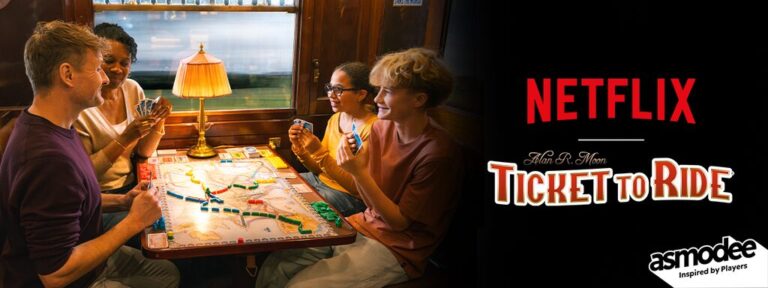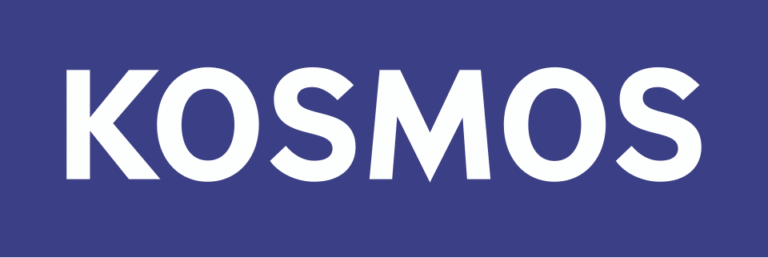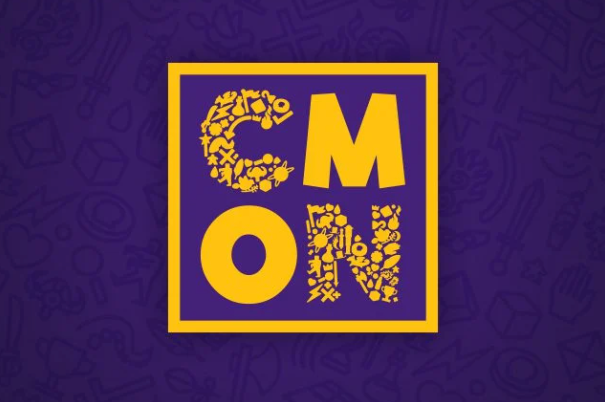
The word ‘meeple’ is being trademarked in the US in reaction to ‘cease and desist’ activity from Carcassonne publisher Hans Im Glueck
The word ‘meeple’, which board gamers around the world will recognise as meaning a stylised human-shaped playing piece, is being trademarked in the US in reaction to Carcassonne’s German publisher Hans Im Glueck sending a ‘cease and desist’ email calling for a crowdfunding project to be taken down.
Meeple Inc, a worker placement game framed around players being board game publishers, has raised about $230,000 from over 1,600 backers through a Gamefound campaign in March this year and subsequent late pledges to the project.
Publisher Cogito Ergo Meeple revealed at the end of May, however, that it was rebranding the game as Tabletop Inc – and the company as Cotswold Games – after receiving a lawyer’s letter on behalf of Carcassonne publisher Hans Im Glueck requesting the project be removed.
The letter, which has been seen by BoardGameWire, points out that Hans Im Glueck owns the German and European trademarks for the word meeple across a wide range of use cases, as well as the trademark representing the classic meeple figure – recognisable in the original Carcassonne game published in 2000.
Meeple Inc designers Joe and Maddie Adams wrote in an update to the Gamefound page on May 27, “We were a little surprised as the term is used so frequently in the hobby.
“We thought Meeples belonged to all board gamers, it appears they don’t. We of course have zero interest in using anyone else’s IP so we think the best option is to do as they ask.
“Fortunately, whilst it creates a fair amount of work for us in the short term, this will not affect the game very much – all gameplay will remain exactly the same and the artwork will only be changed to replace the meeples with our new characters… Mumans.”
Wider implications
Hans Im Glueck’s ‘cease and desist’ letter also seems to have taken the wider tabletop gaming industry by surprise, with players and industry professionals alike posting across social media and BoardGameGeek forums to express their astonishment that such a commonly-used word is trademarked – and that it has not been more heavily enforced in the past.
The action has directly led to a trademark application for the word meeple in the US from Corey Thompson, co-owner of YouTube channel Above Board TV and co-host of the industry-focused Board Games Insider podcast, and Gen Con event manager Marian McBrine.

Thompson told BoardGameWire, “I had just reported the news about Cogito Ergo Meeple for Board Game Insider on May 30, and after we recorded, I called my friend Marian to ask her opinion on it.
“…we talked about implications for a while, then I asked, ‘Well, who holds the trademark in the US?’. Marian instantly knew how to look it up, and we discovered… no one held it.
“There was a pause, then we both said, ‘Maybe we should apply’. Most people who know me would agree I’m a bit eccentric, and not beyond spending some money to prove a point.”
As part of their application the pair are leaning on an Etsy store page set up by McBrine several years ago to sell Corey Thompson fan club merchandise, which he said was created “purely to embarrass me”. McBrine recently added ‘Meeple™’ t-shirts to the store to support the trademark application.
Thompson added, “Marian and I already decided we have no plans at all to make any profit from this adventure. I believe we decided anyone can use our trademark for credit and candy.
“The side effect of this is that we intend to protect the US trademark from predatory action. We would really love for the wordmark to be usable by anyone.”
Trademark Twists
The figure now so widely associated with the word meeple was created by Hans Im Glueck co-founder Bernd Brunnhofer for Carcassonne in 2000 – although the name meeple was coined after its release by American gamer Alison Hansel, who used it as a portmanteau of “my” and “people” to describe her pieces while playing the game.
Hans Im Glueck did not turn its thoughts to register meeple as a trademark until a decade after Carcassonne’s release, when the word had already gained heavy recognition and usage worldwide.
The company finally succeeded in registering the trademark in the EU in 2019 by leaning on the fact that the figure used in Carcassonne had come to be regarded as the “original meeple”.
That registration process featured an objection from board game publishing major CMON, which provided dozens of pages of evidence arguing the word had become too widespread and reflective of general board game playing pieces to be trademarked as a specific style.

CMON’s objection was partially accepted by the EU Intellectual Property Office, which went on to approve Hans Im Glueck’s application for the meeple trademark across a vast sweep of products, including software, jewellery, books, tableware and sporting goods – but not, crucially, for toys and games.
Hans Im Glueck has since registered meeple as a trademark in Germany for usage which does include toys and games, and also owns the EU trademark for the shape of the ‘original’ meeple figure used in Carcassonne.
It was armed with those trademarks that Hans Im Glueck’s lawyers, Breuer Lehmann Rechtsanwälte, contacted Meeple Inc asking for “the infringing project to be removed immediately” – a message Hans Im Glueck’s CEO Moritz Brunnhofer – the son of ‘original meeple’ creator Bernd – told BoardGameWire “should have [been] phrased less aggressively”.
He said, “We tuned down the tone following up immediately, but it was wrong to approach like they are major actors in business.”
Brunnhofer told BoardGameWire that Hans Im Glueck had made “a few” cease and desist requests prior to Meeple Inc, “mainly in the digital area”.
He said, “Why? Well, two usual reasons: defence and respect. For defence, if we do not move against it, not only people will profit from our creation without us, but also theoretically at some point someone could claim that the brand (name/shape) would be theirs.
“While unlikely, it could theoretically lead to someone suing us for the use at some point. If we can’t prove we are checking this, we could lose the option to use it.
“And as for respect, creation should be valued, otherwise we will turn to a copy-system only, and no creativity will be valued. The brand system is one of the main foundations of economic freedom and creation of value.”
Who’s At Risk?
More than 40 games with the word meeple in the title have been published between 2019 and 2024, according to BoardGameGeek’s database, including Final Frontier Games’ A Fistful of Meeples in 2019 and Blue Orange Games’ Meeple Land in 2020.
Board Games Insider, the industry podcast hosted by Thompson, former Stronghold Games president Stephen Buonocore and Portal Games president Ignacy Trzewiczek, asked Brunnhofer how the Meeple Inc situation differed from all these other games, and kindly shared the answer with BoardGameWire.
Brunnhofer said, “It does differ in the direct [attempt] to commercialise mainly the name and shape, referring to the games market… [Meeple Inc] raised a substantial amount of money, that exceeds a lot of usually launched games. So it is not a hobby project by any means anymore.
“And just because we did not act on something, does [that] mean we should not act now? Basically exactly this argument, that there are already many others, enforces companies to go hard from the beginning. Which is a shame.
“Relativizing is also not a [valid] argument. Just because someone did something and got away with it, does not mean it is ok, [does] it? But the main argument was, that many of the other commercialised [attempts] reached out to us from the beginning (before making anything public) and talked to us on a basis of respect.”
When it was put to Brunnhofer by Board Games Insider that Hans Im Glueck “must have known” issuing the cease and desist could be met with “apprehension – or worse, indignation” from the board gaming community, he replied, “Actually, we did not know. This might have been naive. But for us, it was an attempt to raise a huge amount of money (in some years a substantial percentage of our revenue) from someone using others (including ours) creations.
“In hindsight I would have [done] that different and we would approach them less aggressively. We did not use the term ‘cease and desist’, but it was similar in meaning.
“On the big scale we saw our hands forced, as otherwise we might lose our registration, if the project would go through and we can not document legal action against it. This [in] the long run, could endanger the use for us.”
He told BoardGameWire, “We will not change, that if someone asks us nicely, we will allow the use and based on the intent to commercialise it or not, proceed. There are many associations for example who asked for permission and of course can use the logo.”
Brunnhofer added that he had since decided to send an apology to Joe Adams at Cotswold Games “for the way this went, it was too aggressive from our side”.
Meeple Future
Thompson said of Hans Im Glueck’s actions against Meeple Inc, “This is a tough one. I really like Hans im Glueck. I like their titles, I like their people.
“They have owned “meeple” for decades now, both informally through Carcassonne, and formally through the EU trademark. I just don’t understand why they picked this moment, this game title, and this company, to flex their legal rights.
“I would love to understand if this is the beginning of a new stance toward the term, or if this particular game overstepped somehow.
“I find it hard to believe that Hans has started being predatory or overly litigious. I had always thought the owners would like the term to be freely used, and were proud of the affectation.”
Thompson and McBrine’s application covers usage of the word meeple across tabletop games of all kinds, including board games, card games, TCGs and RPGs, as well as t-shirts.
Ryan Dancey, the COO of US board game publisher AEG, told BoardGameWire he expected the US trademark application to draw objections, and added that litigious activity around the word meeple would likely have a “chilling effect” on other companies and games that might have made use of the word.

Alderac itself has a US-registered trademark on the game name Meeples & Monsters, which was granted in 2022 – but Dancey said, “Going forward I would be extremely loathe to use the term ‘meeple’ as the title for a product, and I probably would not use a meeple token with the same shape as theirs.
“The existence of their litigious activity around this mark establishes enough risk that I don’t think it is prudent to go near that mark. I probably would recommend against using our Meeples & Monsters trademark today in an all new product.”
He added, “I think this whole situation is very unfortunate. There might have been a time when HiG could claim that they’d created a unique and distinctive piece of intellectual property in the meeple shaped token, and perhaps they could have claimed to have built equity in the meeple name mark, but I think it is really hard to argue that consumers identified either with their products and services exclusively in 2017 when they filed for registration.
“Carcassonne was published in 2000. The wikipedia entry named ‘meeple’ was created in 2006. By 2017 the shape and the term had become generic (in my opinion). Now both are ubiquitous in tabletop gaming.
“I wish they had not pursued registration on this mark or taken action to enforce their ownership or that when they had someone had noticed and filed a proper objection.”







I remember soem publishers reaching out to aks for permission of using meeple-pawns in their products and tmk they all have been granted. I think over time the idea, that you are using someone elses design element (I dont mean the term, I mean the physical designs) when using a meeple got lost, because so many people used it.
Its in the article. but to highlight: If you registered a trademark you have to defend it, or you risk loosing it. Thats what happend with Sonys Walkman.
I think it would be a good thing if they lost the Trademark.
Too much time had past and too many people already adopted the word, never should’ve been granted it in the first place.
That’s ridiculous. Why shouldn’t it have been granted, just because it became a popular word? He created it, it’s his trademark to own.
But he didn’t create the name, it is right there in the article the name was given by an American unrelated to their company. The trademark on the design of the piece is more reasonable, however, I am still surprised it was granted as it is a fairly generic design (so much so they never thought to trademark it) and was in such wide use for 10 years prior to their application, as that creates a lot of confusion in the marketplace from firms that were using the property free and clear for extended periods of time and are suddenly in breach without any real warning.
Quick clarification- companies that were using it prior to Hans Im Glueck’s trademark are in the clear. Trademark law does not allow ex post facto enforcement.
In fact, those companies are free to continue in their use of the term indefinitely.
This trademark is only actually useful to prevent small German companies- or to give Hans an excuse to bully around small companies (which is what they are doing
Because you cannot trademark things that are in common use. A lot of what you use everyday has been invented by a single entity yet you do not expect it to belong to them forever.
Point if clarification, Hans Im Gluk did not create the term “meeple.” That term came from a fan of the game.
The trademark was refused by the US trademark office and was refused in every important instance in the EU (ie- they don’t own the trademark on meeple for toys and games, but they can stop others from using it for sporting goods).
It is ONLY the German office that granted them the trademark. Ultimately, if this did go to court, Hans would lose because they are very clearly overstepping the bounds of what is protected by their trademark.
The only reason they can get away with this is because they picking on companies that are so small that they are afraid of any and all litigation (even if they are in the right).
[…] BoardGameWire : « The word ‘meeple’ is being trademarked in the US in reaction to ‘cease and desist’ activity …« […]
Probably Boardgamewire will be refused for the same reason that Hans Im Gluk’s attempt to trademark the term in the US was refused.
Drew, BoardGameWire hasn’t applied for any trademarks. Corey Thompson, the co-owner of YouTube channel Above Board TV, and co-host of the Board Games Insider podcast, has applied to trademark it, as per the article.
I would love to see hans im gluek create an open license for the usage of the icon and naming similar to the ORC or the OGL
There is no need for this. Single words are not protected by copyright to begin. They really shouldn’t have trademarked it.
Now they just need to not enforce their trademark (which is of dubious legality anyway since they are enforcing it outside of the jurisdiction to which it applies)
But regardless for their excuses, they hsve shown that what they are interested in throwing their weight around against companies that cannot afford a legal defense.
[…] In an interview with BoardGameWire, Hans Im Glueck CEO Moritz Brunnhofer (son of meeple creator Bernd) acknowledged the cease and desist letter was “phrased too aggressively”, but defended the need to protect their valuable trademark through “defence and respect for creation”. […]
I think it would be funny if they added into the Tabletop Inc game some sort of Easter egg to this incident. A “forced rebranding” or “IP litigation” event card. Haha.
I don’t known what kind of game mechanics the game uses, if “event cards” even fit into the system, or what would make sense to work into the game. But it was just a funny thought. To poke fun at the litigious aspects of board game making, through the mechanics of a board game about making board games, referencing actual events that happened during the making of the game itself. It’s just too perfect. Haha!
I would like the link to the Etsy store for the folks fundraising to try to protect the trademark in the US.
[…] BoardGameWire had more details on the story, though. They actually saw the letter in question. It asserts Carcassonne publisher Hans Im Glueck’s ownership of the “German and European trademarks for the word meeple across a wide range of use cases, as well as the trademark representing the classic meeple figure.” […]
[…] acordo com um artigo publicado pela BoardGameWire (veja aqui) e, antes dela, pelo podcast Board Games Insider (veja aqui), a Hans im Glück entrou com um […]
Can anyone tell me if I am reading this wrong?
Hans Im Gluk registered a German Trademark for Meeple and a useless EU trademark which does not include games- and they are using that as an excuse to bully a UK based company?
Because that clearly seems like they are enforcing it outside the scope of their trademark
[…] The word ‘meeple’ is being trademarked in the US in reaction to ‘cease and desist&… […]
[…] The word ‘meeple’ is being trademarked in the US in reaction to ‘cease and desist&… […]
[…] File this under Trademark Insanity: The word ‘meeple’ is being trademarked in the US in reaction to ‘cease and desist’ activity …. […]
While I agree that Hans Im Gluek and the German registrar acted in bad faith, “solving” the problem by swinging a larger hammer (US trademark) against them is the wrong approach to solve the crisis of faith in board game trademarking (though it is a very American approach).
Eye for an eye and tooth for a tooth leaves us all blind and toothless.